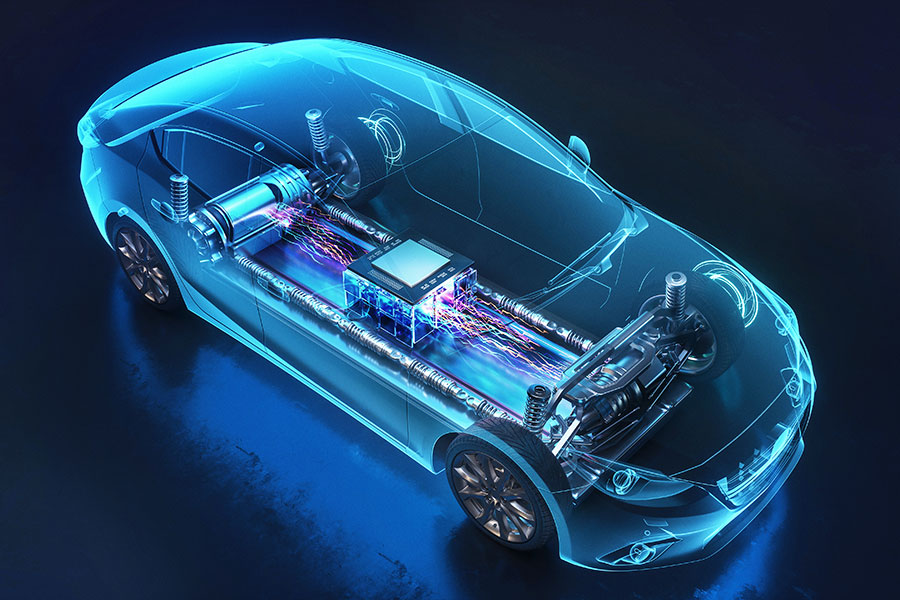Demand shifts towards advanced processes, intensifying competition for automotive semiconductors below 10nm

According to businesskorea, with the rapid transformation of the paradigm of electric vehicles and autonomous vehicle, the demand for advanced high-performance semiconductor products has surged, thus getting rid of the traditional process.
Industry insiders have revealed that the competition for processes below 10nm in the automotive semiconductor market is intensifying. Although traditional automotive semiconductors are mainly produced using traditional processes above 30nm and are not suitable for mobile devices or PCs, people have begun to shift towards high-performance chips with central processing units (CPUs). This change is driven by advances in electronic device based vehicle technology such as autonomous driving and in car entertainment, leading to an increase in demand for high-performance semiconductors.
It is worth noting that Samsung Electronics recently agreed to supply Hyundai with its Exynos Auto V920 advanced entertainment chip, which will be implemented in 2025 and is expected to be manufactured using the 5nm process. The chip can provide real-time vehicle status and driving information, play high-definition multimedia, and run high-end game functions for drivers. Its characteristic is that it can quickly and effectively control up to 6 high-resolution displays and 12 camera sensors.
TSMC recently announced plans to establish its first European factory in Germany and will introduce processes at 12nm and 16nm. Given that TSMC's German factory will produce automotive semiconductors, it is expected that European automakers will be able to reliably purchase semiconductors in the 10nm range.
According to data from Omdia, a market research company, the global automotive semiconductor market exceeded $63.5 billion in 2022 and is expected to grow to $96.2 billion by 2026.
Industry insiders have revealed that the competition for processes below 10nm in the automotive semiconductor market is intensifying. Although traditional automotive semiconductors are mainly produced using traditional processes above 30nm and are not suitable for mobile devices or PCs, people have begun to shift towards high-performance chips with central processing units (CPUs). This change is driven by advances in electronic device based vehicle technology such as autonomous driving and in car entertainment, leading to an increase in demand for high-performance semiconductors.
It is worth noting that Samsung Electronics recently agreed to supply Hyundai with its Exynos Auto V920 advanced entertainment chip, which will be implemented in 2025 and is expected to be manufactured using the 5nm process. The chip can provide real-time vehicle status and driving information, play high-definition multimedia, and run high-end game functions for drivers. Its characteristic is that it can quickly and effectively control up to 6 high-resolution displays and 12 camera sensors.
TSMC recently announced plans to establish its first European factory in Germany and will introduce processes at 12nm and 16nm. Given that TSMC's German factory will produce automotive semiconductors, it is expected that European automakers will be able to reliably purchase semiconductors in the 10nm range.
According to data from Omdia, a market research company, the global automotive semiconductor market exceeded $63.5 billion in 2022 and is expected to grow to $96.2 billion by 2026.